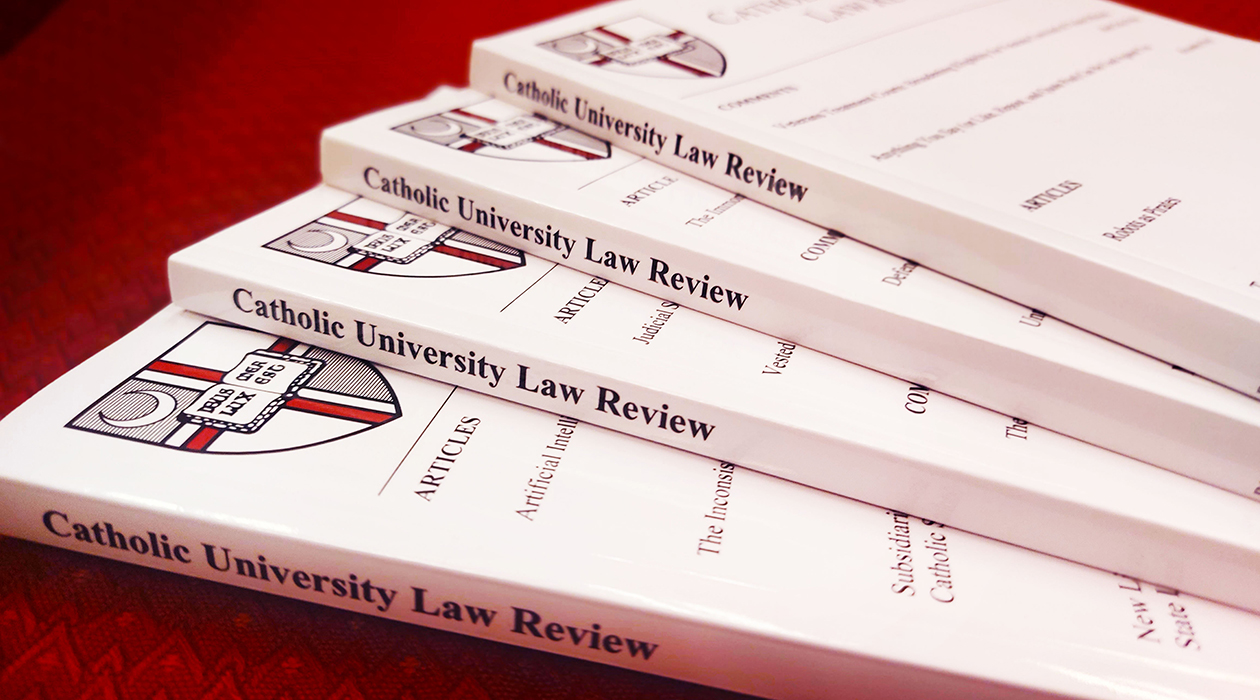Volume 74, Issue 3
Summer 2025
ARTICLES
Re-Evaluating Fulton v. City of Philadelphia: A “Narrow” “Wisp” of a Decision or Free Exercise “Bedrock?”
(Rienzi) Abstract. In Fulton v. City of Philadelphia (2021), a unanimous Supreme Court held that Philadelphia violated the Free Exercise Clause by excluding Catholic Social Services (CSS) from participating in its foster program because CSS would not certify same-sex couples. Both supporters and critics of the Court’s decision publicly characterized the decision as “narrow” and noted that Philadelphia (and other governments) can easily sidestep Fulton and continue excluding religious providers from foster and adoption programs . . .
Modalities, Anti-Modalities, and the Social Psychology of Persuasive Constitutional Argument
(Uddin) Abstract. Constitutional argumentation traditionally relies on modalities such as text, history, doctrine, and structure. However, the exclusion of certain “anti-modalities”—such as policy arguments, fundamentalist views, and emotional appeals—can create a “resonance gap” between legal reasoning and public understanding . . .
Prenatal Personhood, State Duties, and Congress’s Abortion Power Under the Fourteenth Amendment
(Upham) Abstract. Many anti-abortion jurists have contended that by its original meaning, the Fourteenth Amendment not only (1) recognizes the personhood of prenatal human beings, but also (2) requires states to have and enforce the anti-abortion laws necessary to the equal protection of these prenatal persons, and even (3) empowers Congress to pass remedial anti-abortion laws where the states fail to protect such persons. In this essay, I will contend that the Amendment does indeed recognize the personhood of prenatal human beings, but largely leaves with the states the authority to determine the scope of the protection to be afforded such persons . . .
ESSAY
The Challenges Facing Academic Freedom and Free Speech
(Whittington) Abstract. There are growing challenges to free speech and academic freedom on American college campuses. There is pressure from both the political left and the political right to suppress controversial speech on campus, and there are calls to restrict speech that come both from members of the campus community and from those beyond the campus gates . . .
COMMENTS
A Matter of Public Concern: Eliminating the Public Concern Test to Safeguard New York Times Co. v. Sullivan
(Calcerano) Abstract. In recent years, Justices Thomas and Gorsuch have expressed a strong interest in reconsidering, and perhaps overruling, the landmark defamation decision, New York Times Co. v. Sullivan. The Court’s defamation jurisprudence has undergone many changes since the landmark case was decided . . .
The Final Frontier of Federal Power: Understanding, Defining, and Enforcing “Necessary and Proper” to Enhance the General Welfare and Limit Federal Power
(Ralph) Abstract. This Comment explores the long and inconsistent history of the Necessary and Proper Clause and its unique role as both a grant of power to Congress and a limit on the outer reach of the federal government. The federal government is in theory one of limited powers; however, this promise of the Constitution cannot be truly recognized without developing a robust framework for applying the Necessary and Proper Clause as a reliable source of federal power . . .

